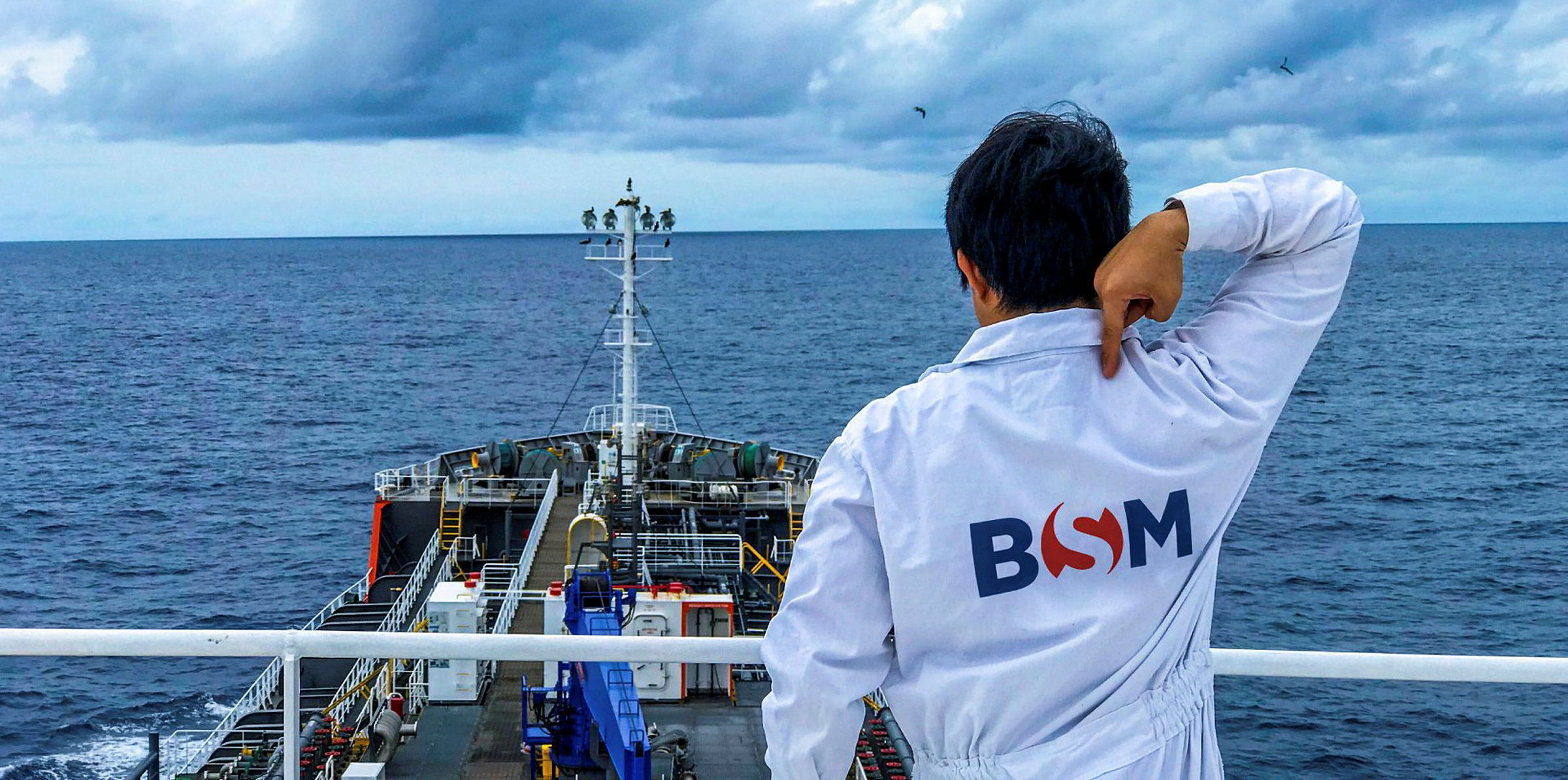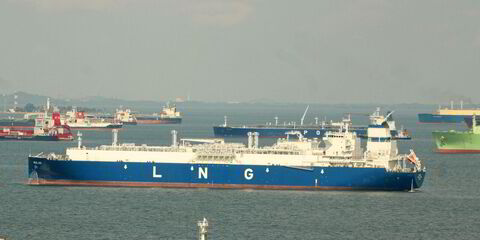This TradeWinds spotlight report would have looked very different three months ago.
But the global coronavirus crisis and low oil price environment have given rise to challenges that could not have been foreseen at the start of this year.
No winners in virus crisis, says Bernhard Schulte boss Beveridge
Chief executive Ian Beveridge says crew changes are 'practically impossible' and predicts more stress for the shipbuilding sector
Airlines can inspire fresh approach to seafarer safety
In the aviation industry, responsibility for accidents reaches further up the chain of command
Crew restrictions drive a shift to Chinese seafarers
As China calls the tune on crew changes, operators are having to adapt
Spike in lay-up demand means slots are at risk of selling out
Demand has been so high that Wilhelmsen Ship Management is hunting for new lay-up locations
Commercial management firms keep legacy of Heidmar alive in Connecticut
Penfield Marine and Concord Maritime carry the torch of Heidmar founder’s vision
Usually TradeWinds would look at what companies are doing to add value outside of their day-to-day shipmanagement work — perhaps by developing digital tools, working on projects to better support the needs of seafarers or even growing by consolidating with other managers.
And here we look at the legacy that pools operator Heidmar will leave in Connecticut when its shuts its doors in June.
But in the wake of the coronavirus outbreak, the most pressing issue for many companies is how to provide continuity and consistency in undertaking their everyday vessel management.
The work that would have seemed so ordinary in early January has become extraordinary.
Managers have also had to come up with solutions to problems they could never have dreamed of three months ago.
How well have managers been able to support their seafarers at a time when crew changes are close to impossible and travel is tightly restricted?
How can they best provide medical support when faced with an illness about which much remains unknown and amid shortages of testing facilities and protective equipment?
How well have shore staff been able to provide their services in countries where public lockdowns have meant that most people must work from home?
One chief executive told TradeWinds that developments in the crisis have been so fluid and fast-moving that managers run the risk of making promises to clients that they may not be able to fulfil if things change further.
Client demands
Underlying all this, the demands of managers’ clients are changing too and much of the industry is coming under financial stress.
Many shipowners have already decided to wait out the crisis by laying up their vessels and demand for slots could even surpass the high levels seen in 2017, Wilhelmsen Ship Management president and chief executive Carl Schou told TradeWinds.
But increased demand for lay-up management is a minor bright spot amid what is a very bleak overall picture — what is bad for shipowners is bad for the shipmanagement business, as Bernhard Schulte chief executive Ian Beveridge put it.
Worldwide public lockdowns to mitigate the spread of Covid-19 have flattened consumption and weakened demand for the commodities and goods that are carried to consumers by sea.
Meanwhile, crude oil prices have been decimated by the production glut that resulted from the Saudi Arabia-Russia price war, which is hurting shipowners that depend on exploration and production activities to generate demand for their vessels.
Although China may be returning to business slowly, the fallout from the global crisis will likely mean things will get worse before they get better in the shipping industry, both on the shore and at sea.
Seafarers who have been forced to remain on board vessels because crew changes cannot be conducted will be subject to increasing levels of fatigue and mental and emotional stress as time goes on.
This is causing concerns for the safety of the crew themselves and for the vessels they are working on — and shipmanagers say they are working to provide extra support where they can.
Once travel restrictions are eased worldwide, there remains the challenge of how managers will change crews on many vessels at the same time.
But such little visibility of how the virus crisis will play out and over what time frame is making it difficult to draw up a plan of action — and business uncertainty will always have commercial impacts.
Shipmanagers will have to keep thinking on their feet to keep up with new challenges and demands to help the shipping industry recover from the pandemic.



